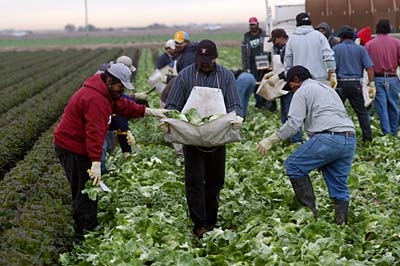Farmworkers have traditionally been left out of most HIV and AIDS prevention efforts, making them an underserved population. There are approximately 2 million hired agricultural workers in the U.S.

Farmworkers are likely to have a similar profile to Latinos. Unfortunately, the vast majority of epidemiological data on HIV prevalence among farmworkers is based on small, local studies conducted more than a decade ago. In order to effectively combat HIV and AIDS in the farmworker community there is an urgent need for more research.
HIV and AIDS take an especially heavy toll on the most vulnerable and marginalized groups in U.S. society. Poverty, low income, limited education, substandard housing, and limited access to health care contribute to increased rates of infection in any given population. HIV is not an occupational hazard of farm work like pesticide exposure or heat stroke. Their isolation, status as recent immigrants, and migration for work contribute to low acculturation, which in turn indirectly influences many HIV risk factors. These include increased likelihood of multiple sex partners for Latino men, low rates of condom use, less use of testing and health services, increased depression which may lead to elevated rates of alcohol and substance use (which often leads to risky sexual behavior), and increased likelihood of patronage of or employment as sex workers. Farmworkers, few of whom are covered by health insurance, also have limited access to essential health care and HIV prevention information and services.
Source: National Council of La Raza, “Facing AIDS in the Farmworker Community”, December 1, 2010.